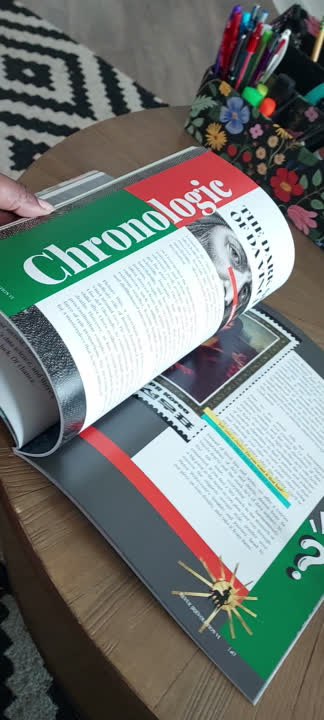Anglophone poets & artists:
Explore our English archives (2019-2025) here
Revue
{R}évolution
revient bientôt.
exclusivement en français!
Initially, Revue {R}évolution was founded to reunite
cultures and philosophies of the East, West, and Africa, and
to celebrate the polymath spirit, drawing inspiration from
the 19th-century European poetry reviews. These reviews,
flourishing during the Romantic era, showcased the
culmination of poetry and art before their abrupt decline—a
decline that, unfortunately, continues today. Revue {R}
évolution, in this philosophical and bilingual form, was
always intended to be a temporary endeavor, yet a modern
continuation of that tradition.
We believe in the pursuit of greater refinement in the fine arts and
have experienced firsthand, as artists and poets, the transformative
power of reconnecting with the origins of noble and transcendent
creativity: Knowledge, Transcendence—the Divine. It is here that both
inner and outer work culminate in a magnificence that transcends
fleeting fashions and endures through the ages.
From 2019 to 2025, Revue {R}évolution has been dedicated to
supporting this effort—seeking devotion, excellence, beauty,
scholarship, and intellectual elevation to reach the nurturing realms
where the Spirit informs Culture, in direct opposition to the forces of
vulgarity, brutishness, and clientelism that threaten the fine arts in
every direction—North, East, West, and South.
What is the purpose of Culture? How do the artist's
creativity and prosperity relate to civilization? What is
the nature and source of inspiration in the fine arts?
What, exactly, is poetry? What are the limits of
autodidactism? What has caused the disappearance of
polymaths? How can poetry and art benefit from
establishing a peer culture, similar to that found in
science? And why is there a lack of proper training for
poets and artists?
We will from now on publish reflections on the nature of poetry and art in French,
exclusively, to inform those of us who wish to reconnect with their deep spiritual
sources and align their creative practices with our original culture from the Sat Yuga.
Our English archives remain accessible to Anglophone poets and artists. In addition to
our 10 issues, essays and bibliographical resources, we recommend the study of Sri
Aurobindo’s book, The Future Poetry, Sri Samarth Ramdas’s Dasbodh, and obviously, a
meticulous reconnection with the noble and divine poetry of the Vedas.
Through our collective work, we have provided informed—scientific—answers to
these fundamental questions, most notably in our central philosophical piece, The
Essence of Non-duality [link to follow]. Most of our work has been conducted in
English, for an anglophone readership of poets and artists. It is now time to return
to our primordial and beloved linguistic sources, and to intensify our work to honor
Religion, the Mother of all civilizations, philosophies, poetries, and art.

Free resource:
The Essence of Non-Duality, A Gateway to Spiritual
Harmony and Artistic Elevation for Poets, Artists,
and Philosophers by M. Mobengo [soon]
We’ve also hosted a YouTube Channel and podcast, which provided a glimpse into the
experience of the poet, artist, and philosopher over the past 5-6 years. Much has been
discussed ad archived. For enriching, scholarly, and inspired insights, we recommend
episodes featuring Sourav Sengupta, David Capps, and Pieter Weltevrede.
Our online Manifesto Writing Course is still available on our
Thinkific platform, all available for continued use.
0.0s